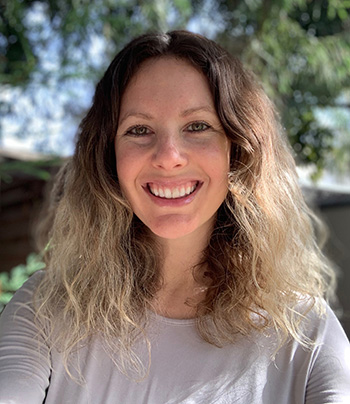Campus News
Genentech Foundation grants support UCSC STEM diversity programs
Three academic support and mentoring programs at UC Santa Cruz have received funding from Genentech’s 2020 Diverse Future of STEM Fund.


UC Santa Cruz has received three grants totaling $875,000 from Genentech and the Genentech Foundation to support programs that provide academic support and mentoring for underrepresented students in science, technology, engineering, and math (STEM) fields.
UCSC’s Academic Excellence (ACE) Program has for decades been helping students succeed in their classes and graduate with degrees in STEM fields. The $450,000 grant from the Genentech Foundation is enabling the program to expand its services and provide the resources students need to succeed in the remote learning environment, with the aim of disrupting the widening equity gaps in STEM retention caused by the COVID-19 pandemic.
The UCSC Institute for the Biology of Stem Cells (IBSC) received a $400,000 grant to expand their existing partnership with California State University Monterey Bay (CSUMB) to provide mentoring, research opportunities, and other support for underrepresented STEM students at CSUMB. The Genentech-sponsored Academic Inspiration Network (GAIN) will give UCSC postdoctoral fellows mentoring experience and training while providing enhanced academic support for CSUMB students.
The MESA College Prep program in UCSC’s Educational Partnership Center was awarded a $25,000 grant to strengthen its work providing hands-on STEM education, STEM career exploration, and college preparation to high school students who are underrepresented, low income, or first-generation college-bound in Santa Cruz and Monterey counties.
Many students from backgrounds that are underrepresented in STEM majors have faced especially difficult challenges in the sudden transition to remote learning driven by the COVID-19 pandemic. ACE Program Director Susanna Honig said the challenges include inadequate internet access and the difficulty of managing online classes while living at home with their families.
“Many of the students we serve have been greatly impacted by the health crisis and the financial crisis, and there is a huge digital divide with respect to the resources needed for remote learning,” Honig said. “It’s more important than ever now to reach out and engage with students. Having these extra resources to maintain and expand our services in a virtual environment will enable us to help more students succeed during this challenging time.”
The Genentech grant will support the ACE Program’s efforts to serve more students, add additional wraparound services for students who are facing inequities, and connect them to the resources they need. The program will add new staff, including new student staff hired from within the program. In addition, the ACE Program will collaborate with UCSC’s Center for Innovations in Teaching and Learning (CITL) to develop and implement new tools and methods to support effective virtual science instruction at UCSC and potentially other institutions as well.
“By working with CITL, we hope to leverage and extend our impact beyond helping ACE students, so our active learning approach can be translated across the STEM departments at UCSC,” Honig said.
The GAIN program aims to enhance the learning experience and improve retention of underrepresented STEM students at CSUMB by partnering them with postdoctoral fellows conducting stem cell research at UCSC. The postdocs will receive mentoring training from CSUMB faculty to prepare them for working with the CSUMB students. In each year of the four-year program, it will support three postdoctoral fellows and 10 to 12 CSUMB undergraduates, and six students per year will be able to conduct a summer research project with their postdoc mentor. The grant also provides funds for computers and internet data plans to help students facing barriers to accessing remote learning.
“The overall idea is to help students left behind by the COVID-19 crisis,” said IBSC Program Officer Catharina Casper-Lindley. “Those challenges are real. Our colleagues at CSUMB say they are losing more students from their classes, not because they aren’t capable of following the material, but because of the logistics of remote learning.”
The GAIN program builds on an existing partnership between IBSC and CSUMB, funded by the National Institutes of Health, to provide training in teaching and mentoring to postdoctoral fellows. Both programs are led by the same team, including Casper-Lindley, Lindsay Hinck, professor of molecular, cell, and developmental biology at UCSC, Camilla Forsberg, professor of biomolecular engineering at UCSC, and Aparna Sreenivasan, associate professor of genetics and molecular biology at CSUMB. The IBSC, originally funded through the California Institute for Regenerative Medicine (CIRM), provides the framework for these various training programs.
The three new grants are funded through Genentech and the Genentech Foundation’s Diverse Future of STEM Fund, which aims to break down barriers for underrepresented students pursuing careers in science and medicine.
“The COVID-19 pandemic continues to exacerbate existing equity gaps, worsening the systemic barriers that students of color face, particularly in the fields of science and medicine,” said Kristin Campbell Reed, executive director of Genentech corporate and employee giving and the Genentech Foundation. “Through our support for innovative programming at local and national postsecondary institutions, we hope to help build a more inclusive and diverse scientific and medical community.”